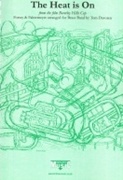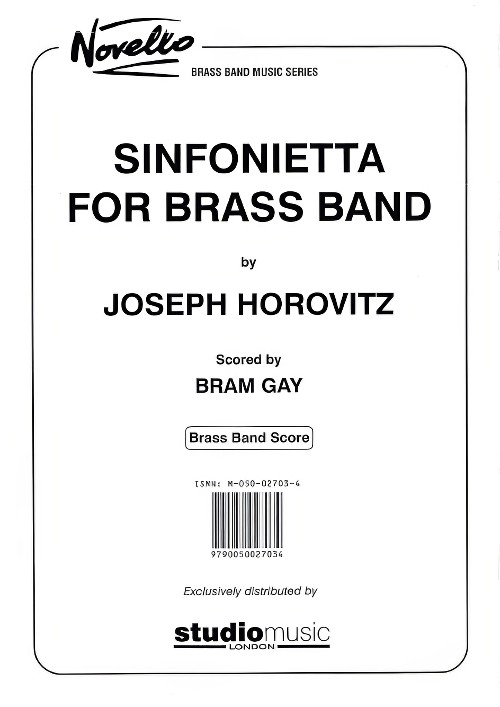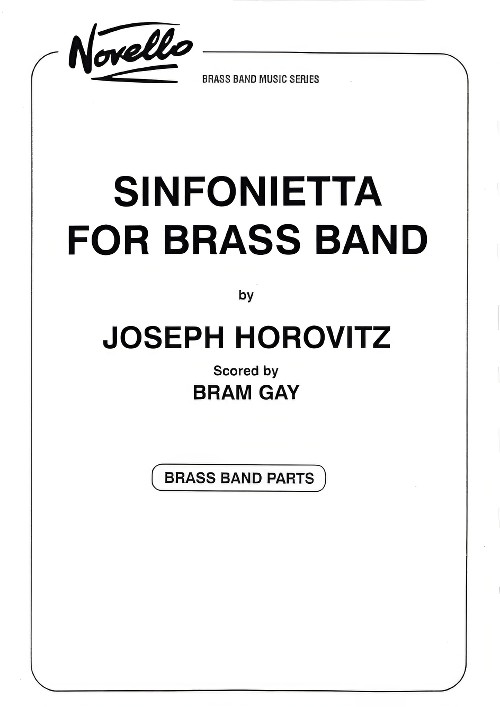Results
-
 £50.90
£50.90CAROL OF THE DRUM, The (Brass Band) - Fernie, Alan
The Little Drummer Boy. Grade: Easy.
Estimated dispatch 7-14 working days
-
 £69.95
£69.95CONCERTINO CLASSICO (Trumpet or Cornet Duet/Brass Band - Score and Parts) - Horovitz, Joseph
Recorded on Polyphonic DPRL901D Joseph Horovitz (The Brass Band Music of)
Estimated dispatch 7-14 working days
-
 £32.95
£32.95CONCERTINO CLASSICO (Trumpet or Cornet Duet/Brass Band - Score only) - Horovitz, Joseph
Recorded on Polyphonic DPRL901D Joseph Horovitz (The Brass Band Music of)
Estimated dispatch 7-14 working days
-
 £82.95
£82.95EUPHONIUM CONCERTO (Horovitz) (Brass Band - Score and Parts) - Horovitz, Joseph
Recorded on Polyphonic DPRL901D Joseph Horovitz (The Brass Band Music of)
Estimated dispatch 7-14 working days
-
 £37.95
£37.95EUPHONIUM CONCERTO (Horovitz) (Brass Band - Score only) - Horovitz, Joseph
Recorded on Polyphonic DPRL901D Joseph Horovitz (The Brass Band Music of)
Estimated dispatch 7-14 working days
-
 £35.00
£35.00HEAT IS ON, The (Brass Band) - Davoren, Tom
The Heat is On is a song written by Harold Faltermeyer and Keith Forsey and recorded by Glenn Frey for the American film Beverly Hllls Cop (1984).
Estimated dispatch 7-14 working days
-
 £50.90
£50.90SMURFS, The (Brass Band) - Ratnik, Peter
From the hit TV show and the hit movie. Grade: easy/medium.
Estimated dispatch 7-14 working days
-
 £37.95
£37.95Sinfonietta (Brass Band - Score only) - Horovitz, Joseph - Gay, Bram
2012 Belgian National Championships - 3rd SectionRecorded on Polyphonic DPRL901D Joseph Horovitz (The Brass Band Music of)
Estimated dispatch 7-14 working days
-
 £74.95
£74.95Sinfonietta (Brass Band - Score and Parts) - Horovitz, Joseph - Gay, Bram
2012 Belgian National Championships - 3rd SectionRecorded on Polyphonic DPRL901D Joseph Horovitz (The Brass Band Music of)
Estimated dispatch 7-14 working days
-
£29.95
REDCLIFFE MARCH, The (Brass Band Set) - Daniel Hollis
First published in 1929, this march was written when the composer was living in Redcliffe, Australia.
Estimated dispatch 7-14 working days
